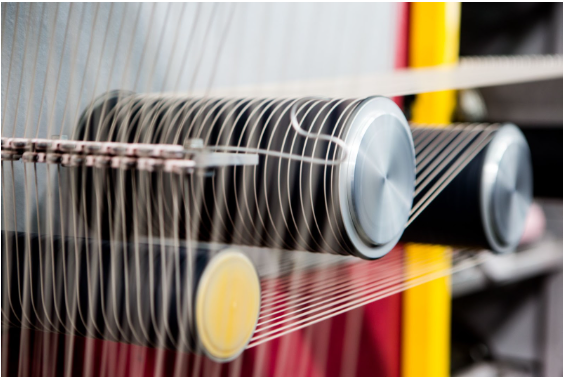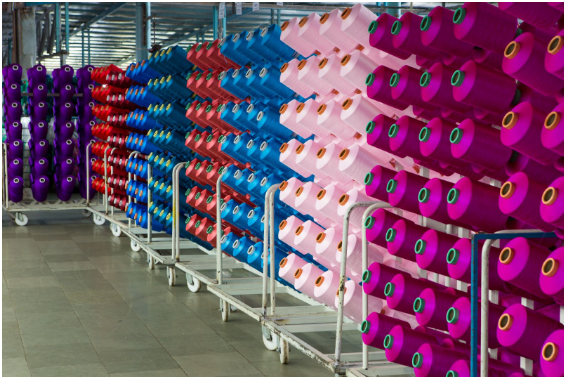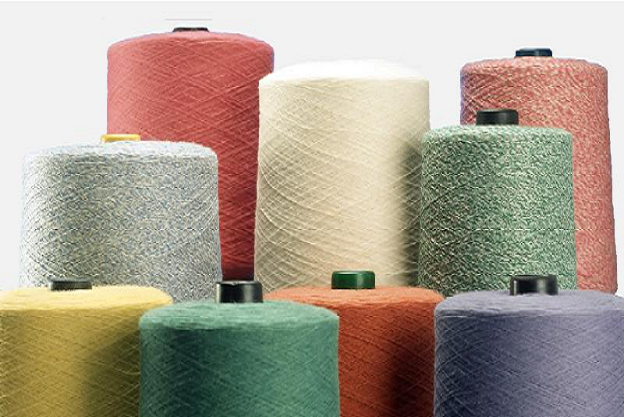Encouraging sustainability in the yarn sector is crucial for several reasons. One of the primary reasons is that yarn production can significantly impact the environment, especially with the manufacturing procedures involved. Using chemicals and water in dyeing and finishing yarn can lead to water pollution and other environmental issues. Moreover, the textile industry has a significant social and economic impact, making it essential to prioritise sustainable yarn manufacturing to ensure ethical workplace practices and support the livelihoods of industry workers.
By promoting sustainability in the yarn sector, we can mitigate the environmental impact of yarn production, use natural resources more efficiently and contribute to the social and economic well-being of communities involved in the business.
The Impact of Choices
When selecting yarn, fashion brands and businesses typically prioritise two factors – its colour and aesthetics or its affordability – with little regard for the environmental impact. However, Indian yarn producers are becoming increasingly aware of sustainability concerns and are offering sustainable yarn options to their clients.
Businesses and designers who embrace circular fashion seek to create ethical and environmentally responsible products by taking a circular approach to production. They conduct extensive research to identify suitable fabrics and high-quality yarn, moving objects circularly rather than linearly.
Selection of Eco-friendly Yarn
When selecting eco-friendly yarn, consider these factors to ensure that the yarn is both sustainable and environmentally responsible.
Water consumption
Water is an essential resource in yarn production, from growing raw materials to dyeing and finishing the yarn. Different techniques require varying amounts of water, making it a crucial point to consider, especially in countries where many people lack access to clean drinking water. In addition to this, there is often a scarcity of water for other crucial purposes, such as growing cotton.
The impact of water usage in the textile industry is significant, and it is crucial to address this issue to ensure sustainable production. Excessive water consumption in the yarn production process can lead to water pollution and depletion of water resources, further exacerbating water scarcity issues. This affects the environment and the social and economic well-being of communities.
As a result, sustainable practices that reduce water usage and prioritise responsible water management are critical for the yarn production industry. This includes using water-saving technologies, such as closed-loop systems, to minimise water usage and prevent contamination. Additionally, promoting responsible sourcing of raw materials and using non-toxic dyes can help minimise the impact on water resources.
AYM Syntex has achieved the Zero Liquid Discharge (ZLD) certification for its water consumption. ZLD is a process that ensures that no liquid effluent is discharged into the environment, thus eliminating the environmental impact of textile wastewater. The ZLD certification is a testament to AYM’s commitment to sustainability and its efforts to reduce its impact on the environment.
Use of chemicals
The use of chemicals is an integral part of the yarn production process, from spinning to dyeing. Chemicals impart specific qualities to the yarn during the spinning process, make plants pest-resistant during the growing process and achieve desired colours during the dyeing process. While chemicals are necessary to produce high-quality yarn, it is essential to consider their impact on the environment.
Chemicals used in the yarn production process can harm the environment, particularly if not managed responsibly. Chemicals released during the dyeing process can pollute water sources, and the chemicals used to make plants pest-resistant can contaminate the soil. Furthermore, toxic chemicals can harm the health and safety of workers involved in the production process.
To address this issue, it is important to promote environmentally friendly chemicals and sustainable production practices. For example, using natural dyes made from plants, fruits, and vegetables can help minimise the impact of chemicals on the environment. Additionally, using organic and non-toxic pest control methods can reduce the use of harmful chemicals in the growing process. While using chemicals in the yarn production process is necessary, ensuring that their use is managed responsibly to minimise their impact on the environment and promote sustainable production practices is essential.
AYM Syntex has received an Oeko Tex Certification, indicating that our textiles have been tested for harmful substances and have met strict human-ecological standards.
Carbon blueprint
The carbon blueprint refers to the amount of greenhouse gases released during a product’s life cycle, from manufacturing to transportation. The carbon footprint is influenced by several factors, including growing, rearing, harvesting and processing raw materials.
Natural fibres like cotton and wool tend to have lower carbon footprints than synthetic fibres. This is because synthetic fibres require significant energy to manufacture, resulting in high greenhouse gas emissions. However, there can be significant variations even among the same fibre type. For example, the carbon footprint of cotton can vary depending on the farming practices used and the distance between the farm and the processing facility.
To address this issue, promoting sustainable production practices prioritising responsible sourcing is important. This includes using locally sourced raw materials and manufacturing yarn near where the raw materials are sourced to reduce transportation emissions.
Also Read : What is the Importance of Yarn in a Fabric?
Sustainable Yarn Production with AYM Syntex
In pursuing sustainable yarn production, many manufacturers are implementing measures to reduce their environmental impact in pursuing sustainable yarn production. One such company that has made significant strides in this area is AYM Syntex. As global leaders in manufacturing specialty and multi-polymer yarns, we have pioneered sustainable practices throughout our production process to ensure that our yarns meet the required specifications. By prioritising responsible sourcing and manufacturing, we are helping to promote a more sustainable and environmentally conscious approach to yarn production. Contact us if you’re looking for high-quality polyester yarns.




